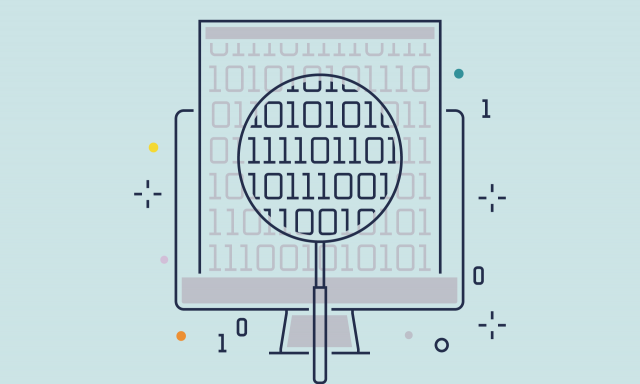

 Article
Article

 Is coding an essential job skill of the future? Should MBA students learn to code? Darden Professor Alex Cowan answers five questions on the building blocks of much of our digital world.
Is coding an essential job skill of the future? Should MBA students learn to code? Darden Professor Alex Cowan answers five questions on the building blocks of much of our digital world.

Insights from
Written by
Is coding an essential job skill of the future? Should MBA students learn to code? If so, what does that mean — and how much is enough?
It’s a surprisingly controversial question with strong opinions on each side, and the internet is rife with lengthy think pieces detailing the arguments for and against. Is coding a fundamental skill for the jobs of the future, or a series of rote tasks that machines will soon perform more effectively than humans anyway? Darden Professor Alex Cowan leans toward the former camp, but sees coding as just one skill in a well-rounded professional toolkit. It’s a skill that’s more effective when bundled with a host of other business and leadership traits.
Cowan, who teaches a number of courses on design and digital innovation at Darden and via publicly available online courses, recently offered his thoughts on why coding matters.
Traditionally, it’s been defined as creating instructions for a machine to execute. That definition still works, but with the ascendance of machine learning, you now have situations where what comes out the other end isn’t directly intelligible by a coder. With a neural network for machine learning, for example, it’s almost like you’re seeing the raw thoughts of the computer and those won’t make sense to you. With an end user application, you have a more easily understood set of steps. So really, you kind of have these two types of coding: data science and application development, which have some foundation elements in common, but are fairly different in practice.
What coding means for businesspeople is that in the not-so-distant future they’ll either be telling a machine what to do or it will be telling them what to do, to paraphrase [tech luminary] Marc Andreessen. I know that sounds kind of bleak, but I don’t think I’m serving students or anyone with decades of career ahead of them by pretending I don’t see that coming.
That’s what I think, but in practice it means something fundamentally different for a businessperson than it does for a career coder. A popular approach on teaching businesspeople — or business majors or MBAs — coding is to put them in some kind of “computer science light” class. I haven’t seen that work well.
As crazy as this sounds, a phrase I’ve grown to hate is “knowing enough to be dangerous.” You’re not trying to be dangerous — you’re trying to be awesome. How do you solve for awesome for a businessperson in digital?
I think everyone should start with that question. Really, what they need to learn is, end to end, what it means to go from idea to code. And, as you learn about your user, how do you apply that to iterating on your code in a focused, purposeful way? If your team is using agile, then facilitating that process is going to be your main job.
Basically, I think the right learning experience involves going from idea to design to code. That means:
Doing this gives the businessperson a perspective on how coding fits into a modern product program. They’ll take away a creative confidence that I think only comes from a hands-on understanding of the process. I just don’t think you can learn that without directed practice.
You know, languages and tool chains come and go. My classes, “Software Development” in our MBA and “Coding for Designers, Managers & Entrepreneurs” online, loan themselves to Javascript, but as long as the language isn’t super esoteric or a bad fit with what you’re trying to do, I don’t think it matters too much. If I’ve done my job, starting with a new programming language is something that all my students can do in an afternoon.
Generally, I agree, and that’s why I’ve devoted myself to enabling generalists in this area.
I think there is some important nuance to what we mean by “hard skills,” though. In practice, what I know from managing, teaching and investing in MBAs is that you can’t be on the sidelines with regard to the technology. While your success is going to be determined by your ability to engage and focus a technical team and that has a lot to do with your “soft skills,” you need a fundamental understanding, a fundamental numeracy, about what they’re doing.
Without that, you’re not going to feel creative and you’re not going to be creative. And that’s really what I’m after with my teaching — to make everyone creative.
Cowan is an expert in digital innovation, agile and lean methodologies, and entrepreneurship. He teaches multiple courses in Darden’s Technology and Operations Management area, as well as the massive open online course specialization “Agile Development” (one of Coursera’s Top 15 specializations) and “Digital Product Management: Modern Fundamentals.”
Author of the book Starting a Tech Business: A Practical Guide for Anyone Creating or Designing Applications or Software, Cowan is also an experienced entrepreneur and intrapreneur who now divides his time between instructing, advising and consulting. He delves into venture design, his systematic approach to developing new products and businesses, on www.alexandercowan.com.
Cowan studied industrial engineering and economics at Stanford University.
Learn to Code? Yes, Actually: 5 Big Questions on Coding
Share